Somalia election impasse: Opposition leaders say Farmajo no longer president
Somalia's opposition leaders have announced that they no longer recognize Mohamed Abdullahi Mohamed as president, after his term expired without a political agreement on how to choose a new leader.
"Starting from 8th February 2021, the council of opposition candidates does not recognize Farmajo as president. The council will not accept any form of mandate extension through pressure," the opposition leaders said in a statement issued late Sunday that referred to the president by his common nickname.
The announcement followed the failure of attempts by the government in Mogadishu and the leaders of Somalia's five federal states to end a dispute over how to proceed with elections.
Farmajo has said that his administration would embark on the implementation of the September 17, 2020 electoral agreement, which would allow 101 delegates to select members of parliament, who would choose the next head of state.
However, some regions have refused Farmajo's suggestion and the country's leaders have failed to reach a deal on how to choose a new president.
Libya-graduated former head of state Sheikh Sharif Ahmed said the opposition political parties were ready to take part in negotiations to avoid conflict and instability in the Horn of Africa nation.
Regional leaders had initially aimed to hold a first direct election in more than three decades but delays in preparations, and the government's inability to rein in daily attacks by militants, meant switching to an indirect vote, with elders picking lawmakers who would choose a president.
Somalia has been hit by several gun and bomb attacks in the past weeks.
More than a dozen members of Somalia's security forces, including a senior commander, were killed in a roadside bombing just outside the city of Dhusamareb in central Somalia, some 400 kilometers north of the capital Mogadishu on Sunday.
On January 31, at least five people, including a prominent former general, were killed in attack on a Mogadishu hotel by the al-Qaeda-linked al-Shabaab militants who have been waging war across Somalia.
The militant group aims to oust the government in Mogadishu and drive out African Union peacekeeping troops. It has been carrying out militancy since 2006.
Al-Shabaab militants have fought successive Somali governments as well as neighboring governments in Uganda and Kenya, the latter of which sent troops to Somalia in 2011 to fight the group as part of the African Union forces.
US House passes bill targeting charities and pro-Palestine groups
Hezbollah attacks Israeli forces after Lebanese homes blown up
World leaders, states hail ICC arrest warrants for Netanyahu, Gallant
MP: US accountable for possible Israeli 'foolishness' to attack Iraq
VIDEO | Israeli policies strangle Palestinian agriculture, economy
Iran's president offers condolences to Pakistan over terrorist attack
Canada’s Yukon town council at standstill over refusing oath to King Charles
Yemen's Houthi calls for jihad to protect Palestine against Israel


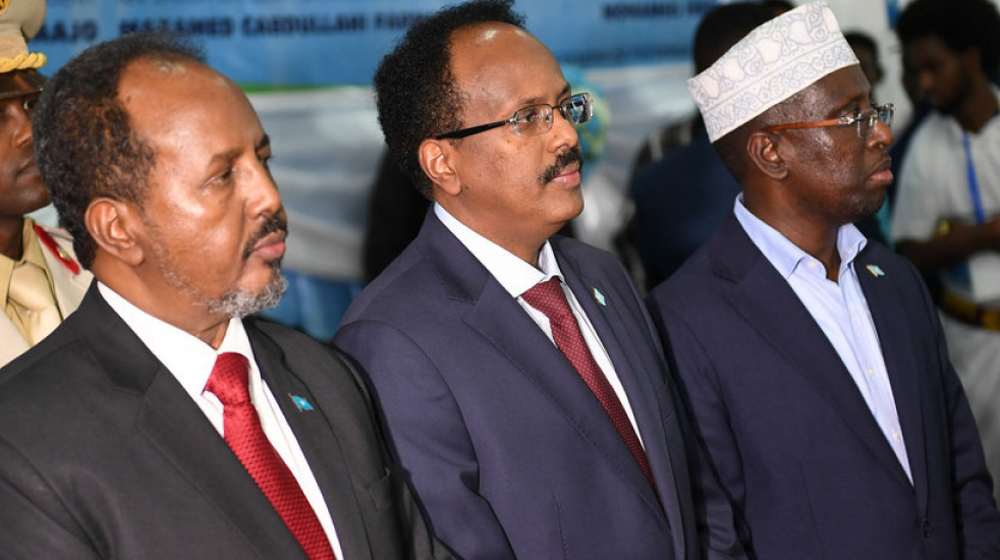

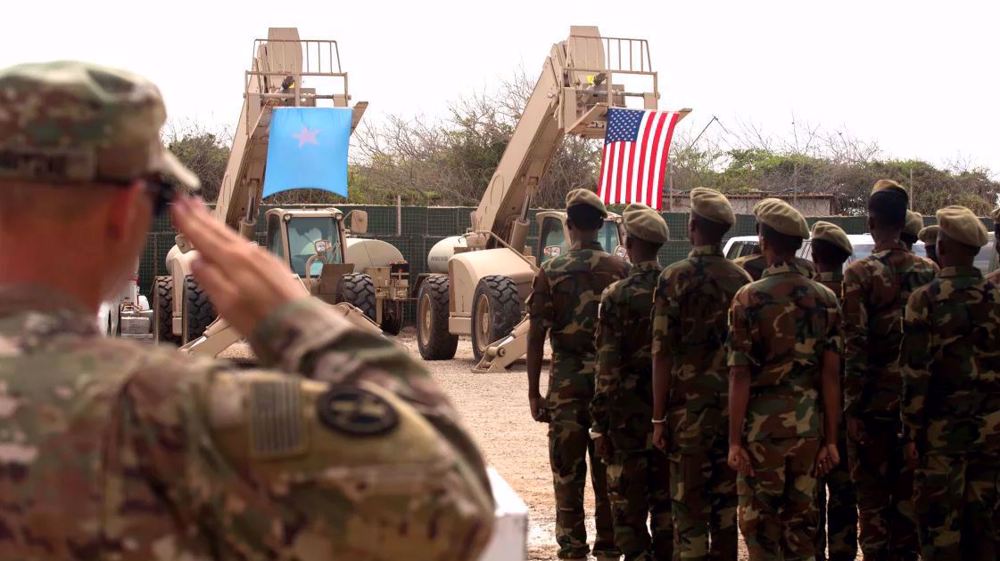
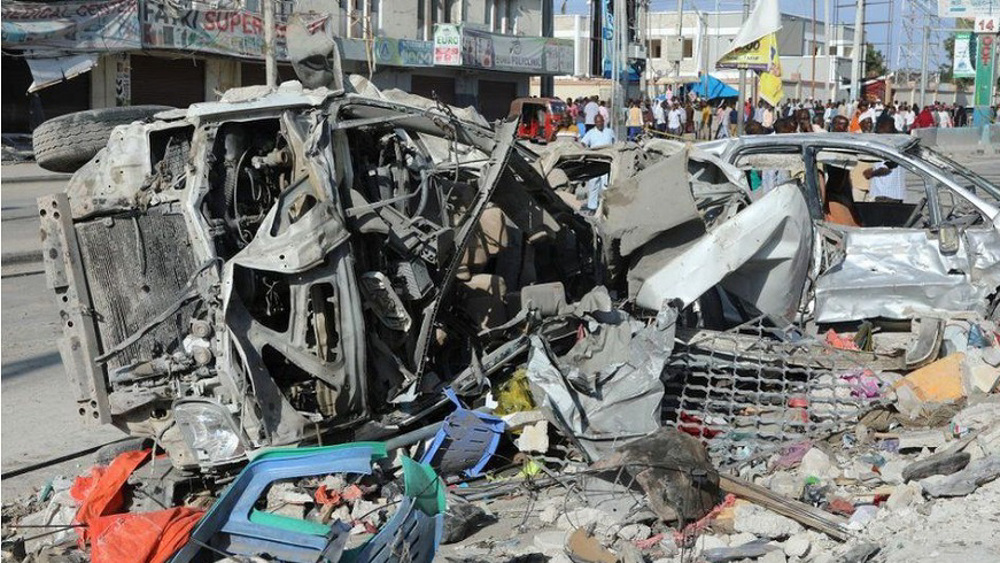
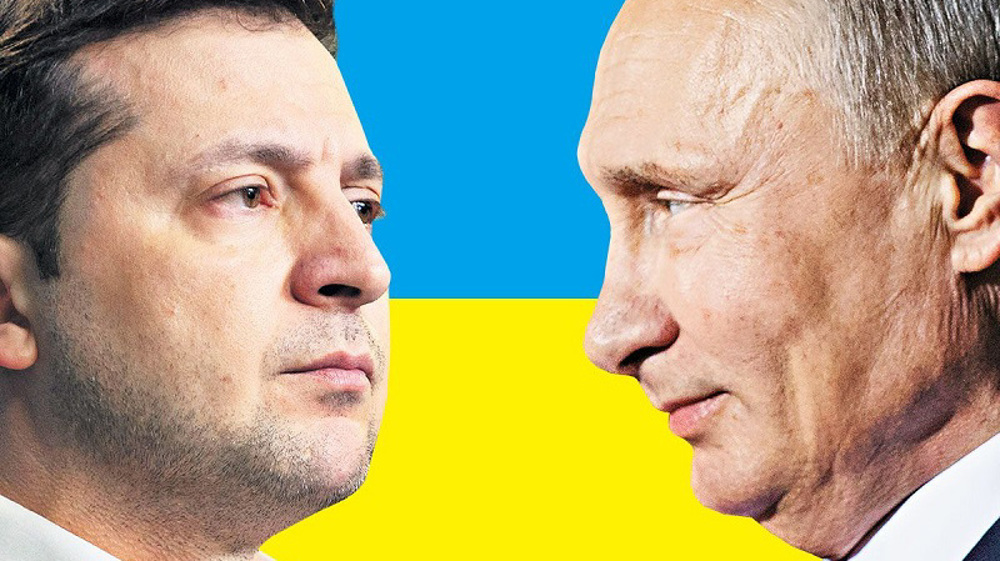



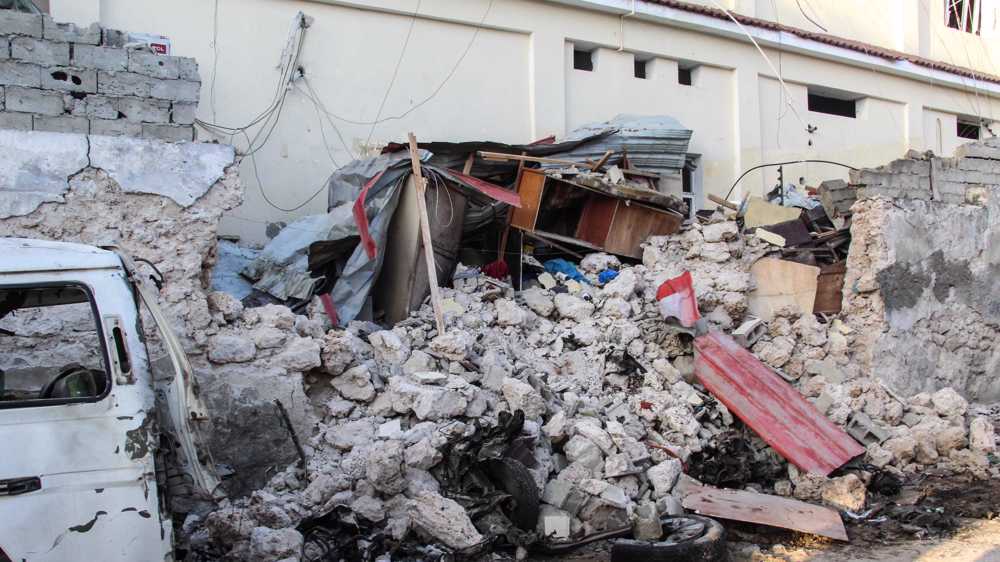
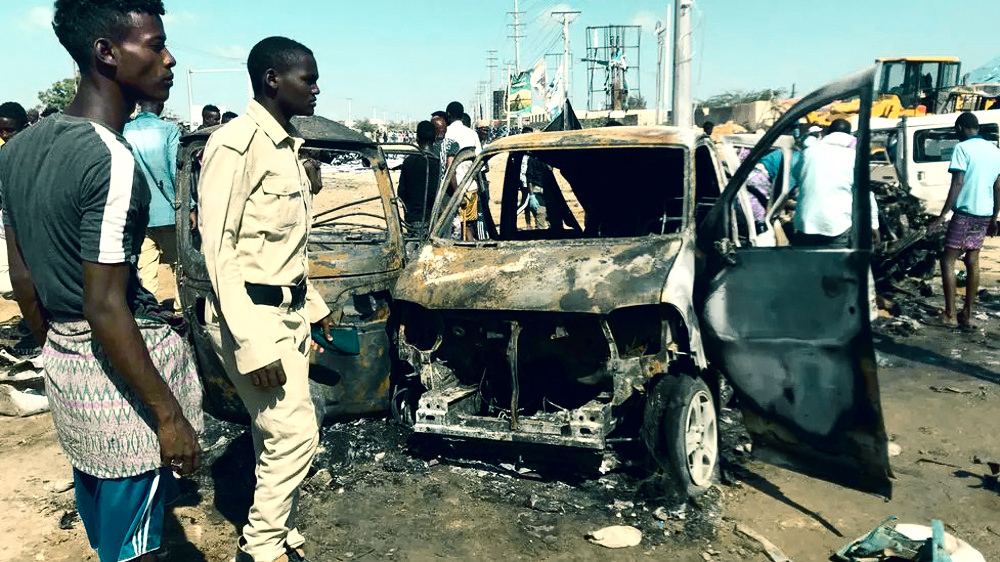

 This makes it easy to access the Press TV website
This makes it easy to access the Press TV website